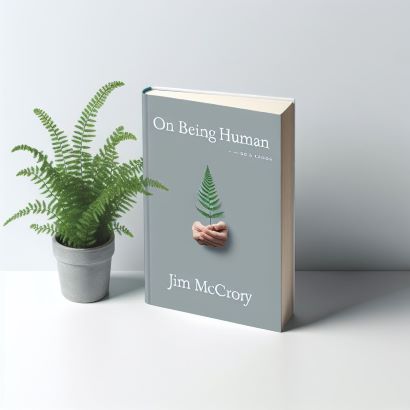"It is never too late to be wise."
Daniel Defoe's Robinson Crusoe

Image generated with the assistance of Microsoft Copilot
One of the great charms of the BBC Radio Four Desert Island Discs programme lies in the way it delicately uncovers the soul of its guest. Through the alchemy of music, books, and a solitary luxury item, a castaway’s life is distilled into the essence of their values, struggles, and joys. It’s an enchanting premise. Who hasn’t fantasized about being on that program, curating their eight tracks, choosing a book, and pondering the significance of their luxury item? For a writer, the appeal is especially tantalizing; it offers the ultimate exercise in storytelling, a self-portrait painted in notes, words, and objects.
Yet, despite my admiration for the show and its many luminaries, there is one recurring moment that always startles me: the occasional refusal of the Bible. Guests are invited to accept it as part of their island toolkit—alongside Shakespeare’s collected works—but some decline. This leaves me momentarily speechless. How, I wonder, can anyone maroon themselves without a book that has nourished souls, inspired minds, and shaped civilizations?
For believers like me, the Bible’s importance is profound, transcending its literary virtues. Yet, even for those without faith, the Bible stands as one of humanity’s greatest treasures—a sprawling library of history, poetry, wisdom, and parable that illuminates the human condition with unparalleled depth.
The Bible is not merely a religious text; it is an anthology, a tapestry of genres. Within its pages are soaring hymns of praise like Psalm 23, which has comforted millions: “The Lord is my shepherd; I shall not want.” Its rhythms are timeless, like a heartbeat in the dark, reassuring and grounding. There is the stark poetry of Ecclesiastes, which peers into the fleeting nature of life: “To everything there is a season, and a time to every purpose under the heaven.” There are the fiery dramas of the prophets, the tender love poetry of Song of Solomon, and the unflinching wisdom of Proverbs. Few other works of literature encompass so broad a spectrum of human experience.
Consider the parables of Jesus, simple stories with profound truths. The Good Samaritan transcends time and place, calling us to question prejudice and act with compassion. It takes genius to express such complex themes in such plain, unforgettable language.
And then there is the book of Job, arguably one of the greatest pieces of world literature. Here, the problem of human suffering is explored with unsparing honesty. Job’s lament— “Why is light given to him that is in misery, and life unto the bitter in soul?”—speaks to the anguish of every broken heart, and yet it also reaches for the eternal, seeking answers beyond the grasp of mortal understanding.
The Bible, at its core, reveals what it means to be human. It grapples with our flaws and our virtues, our doubts and our faith, our fears and our hopes. Its characters are not paragons of virtue but profoundly flawed individuals, from David, the psalmist and adulterer, to Peter, the impetuous disciple who denied his Lord. Through their failings, we find ourselves reflected.
Even as a child, I sensed this when I first encountered the Bible’s stories. I was drawn to its honesty, the way it never flattered its heroes but presented them warts and all. This unvarnished truth has stayed with me, shaping my understanding of humanity and the grace we so often need.
Even for those who view the Bible purely as a cultural artifact, its influence is impossible to ignore. Shakespeare himself was shaped by it; its cadences resonate through his plays and sonnets. The abolitionists drew strength from its call for justice, as did Martin Luther King Jr. The English language itself owes much to the King James Bible, whose phrases— “by the skin of my teeth,” “the powers that be,” “the writing on the wall”—have entered everyday speech.
To refuse the Bible on a desert island, therefore, is to cut oneself off from a wellspring of language, culture, and thought. It is to lose a dialogue not only with God but with humanity’s deepest questions and struggles. And on an island, alone with the horizon, who would not want such a companion?
If I were a castaway, I could no more refuse the Bible than I could refuse water. Its words have shaped me, anchored me, and consoled me in moments of despair. I would need it not just to sustain my faith but to remind me of the vast, interconnected story of humanity—a story in which we are all characters, struggling, failing, and hoping.
I do not expect to find myself as a guest on Desert Island Discs. But if I did, I would have to think carefully about the books and music I would want stranded with and I will consider this for a future essay.
Comments
New comment
Hi Jim,
I very much agree with your post. I have enjoyed reading the Bible, it is my favourite book and I find it packed with wisdom and encouragement !
Perhaps thats why I like to return to it again and again.
Best wishes Gill
New comment
Many thanks Gill. I hope the studies are going well.